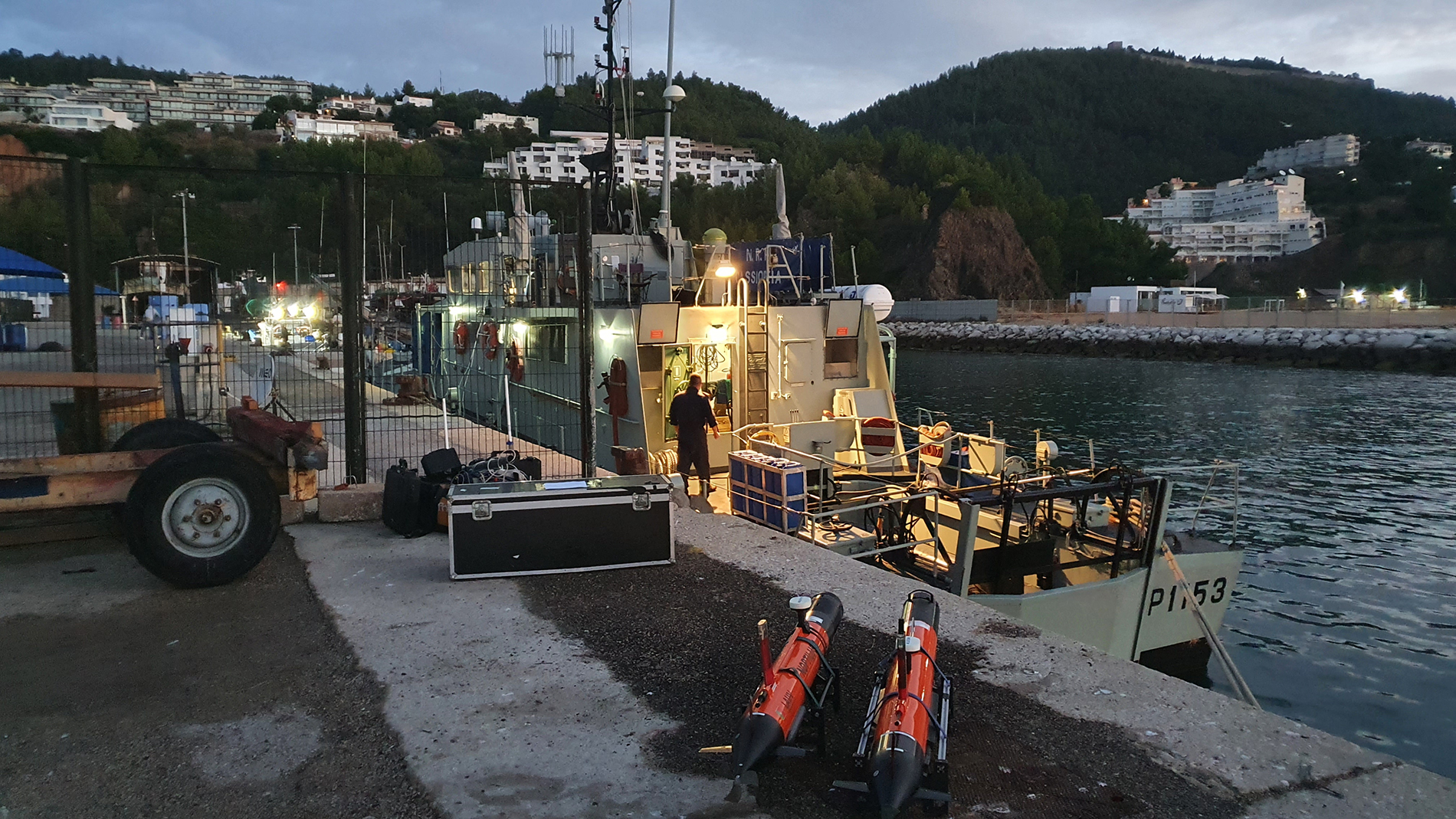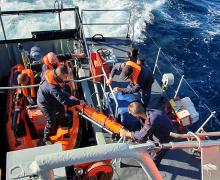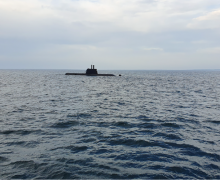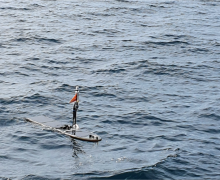Joint-Research Activity with UPORTO and NATO-STO during REP(MUS)21 exercise.
The DISSUB (stands for Distressed Submarine) exercise is focused on the usage of underwater digital communications (STANG4748 also known as JANUS) for support in submarine SMER (Submarine Escape and Rescue) operations. This exercise in REP dates back to REP17 edition, and has been developed and experimented over the last editions under the scope of the EUMarineRobots project as a joint research activity (JRA) between the NATO CMRE and UPORTO FEUP LSTS, in close cooperation with the PT Navy. The main goal for LSTS is to further integrate the use of the AUVs during the searching phase of a distressed submarine.
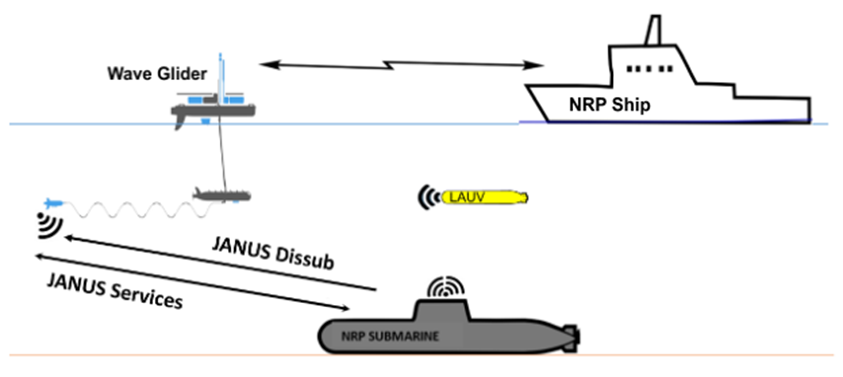
The exercise outline goes as follows:
- After a hypothetical emergency is declared, a JANUS enabled underwater telephone onboard the NRP Submarine starts sending periodically JANUS messages with estimated position and relevant vital data of persons and environment.
- The JANUS packets will be picked up by the Wave Glider and forwarded to the AUVs operating in the area.
- The AUVs are used to triangulate and confirm the position of the distressed submarine to reduce the error on the sent location.
- The AUVs receiving the distress data will trigger a searching behavior navigating towards and around the submarine.
On the 15th and 18th of September the DISSUB exercise was executed and we were able to successfully receive a distress signal from the NRP Submarine and execute search patterns automatically generated onboard the AUV. The AUV surveys confirmed the NRP Submarine location and acquired sidescan images on the location.
This year’s edition was more challenging due to COVID-19 restrictions, but nonetheless we were able to improve the quality and efficiency of the automatically generated search patterns. In the next edition we hope to improve the communication procedure between the AUVs and the Wave Glider, in order to trigger the search pattern survey more efficiently.
To learn more about REP(MUS)21, visit: www.lsts.pt

